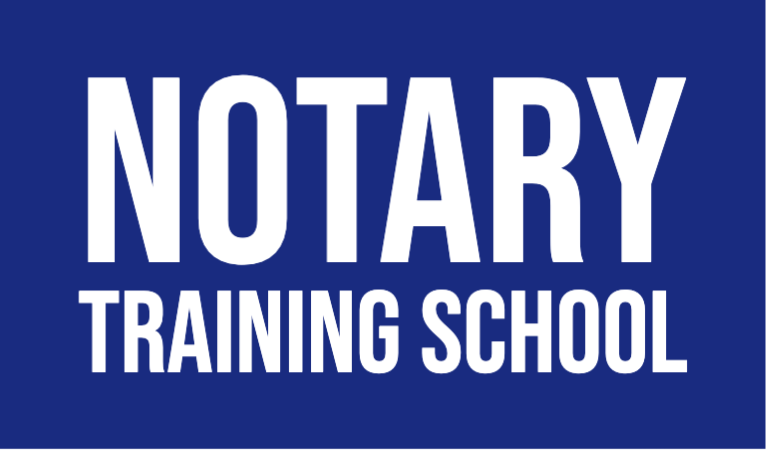Becoming a Notary: How to Get a Notary License

Becoming a notary public is a valuable way to contribute to your community by serving as an impartial witness in legal matters. Notaries play a crucial role in verifying identities, witnessing signatures, and preventing fraud. This article will guide you through the steps to obtain your notary license, covering everything from basic requirements to setting up your practice and maintaining your commission.
Table of Contents
Understanding the Role of a Notary Public

Responsibilities and Duties of a Notary Public
A notary public is a state-appointed official responsible for verifying the identity of signatories, witnessing the signing of documents, and administering oaths. The role of a notary is essential in preventing fraud and ensuring the authenticity of various legal documents, including affidavits, deeds, and powers of attorney. Notaries are trusted to uphold the integrity of these documents, making their position crucial in legal and financial transactions.
Importance of Notaries in Legal and Financial Transactions
Notaries serve as impartial witnesses in numerous legal processes, ensuring that all parties involved understand the documents they are signing and are doing so voluntarily. This impartiality helps prevent fraud and forgery, providing an additional layer of trust and security in legal transactions. The presence of a notary can also help resolve disputes, as their impartial testimony and notarial record can provide crucial evidence.
Basic Requirements for Becoming a Notary

General Eligibility Criteria
Before you begin the process of becoming a notary, it’s important to understand the basic requirements. Generally, you must meet the following criteria:
- Age: Most states require notary applicants to be at least 18 years old.
- Residency: You must be a legal resident of the state where you are applying.
- Language Proficiency: You need to be able to read and write in English.
State-Specific Requirements
Some states may have additional requirements, such as not having a felony conviction or being a U.S. citizen. It’s essential to check your state’s specific requirements before proceeding. For instance, states like California and New York have distinct mandates that applicants must adhere to, which may include additional training or examinations.
Step-by-Step Process to Obtain a Notary License
Application Process
- Obtain the Application Form: Begin by obtaining the notary application form from your state’s notary commissioning authority, usually the Secretary of State’s office. This form can often be downloaded from the state’s official website.
- Fill Out the Application: Carefully complete the application form, ensuring all information is accurate and up-to-date.
- Submit Required Documentation: Along with your application, you will need to submit various documents, such as proof of residency, a copy of your ID, and any required fees. Some states may require additional documents, such as proof of citizenship or a recent photograph.
Background Checks
Many states require a background check to ensure the applicant has a clean legal history. This typically involves a review of your criminal record to ensure you have no felony convictions or other disqualifying offenses. The background check process can vary by state, so be sure to follow the specific instructions provided by your state’s notary commissioning authority.
Education and Training Requirements
Notary Education Courses
Some states mandate completing a notary education course or passing an exam. These courses cover essential topics such as notary laws, procedures, and ethical responsibilities. The Notary Signing Agent Academy offers comprehensive training programs to prepare you for this, ensuring you are well-versed in your state’s specific requirements.
Exam Preparation
If your state requires an exam, thorough preparation is crucial. Utilize study guides, practice tests, and online resources to familiarize yourself with the exam content. Focus on understanding state laws, notarial acts, and proper procedures to increase your chances of passing the exam on the first attempt.
State-Specific Requirements

Overview of State Variations
While the general process is similar, each state has its unique requirements. Understanding these variations is crucial to ensure compliance with state-specific mandates.
Examples of Unique State Requirements
- California: Requires a six-hour training course and a state-specific exam. California also mandates a detailed background check and the submission of fingerprints.
- New York: Applicants must pass a written exam and are required to be U.S. citizens. Additionally, New York notaries must file their commission with the county clerk’s office.
- Florida: Requires applicants to complete a three-hour notary education course, which can be done online or in person. Florida also has specific bonding requirements that applicants must fulfill.
Preparing for the Notary Exam

Importance of Notary Education
Education is crucial for becoming a notary. Not only does it prepare you for the exam, but it also ensures you are knowledgeable about your duties and responsibilities. Well-trained notaries are more likely to perform their tasks accurately and ethically, reducing the risk of legal issues.
Study Resources
Utilizing Study Guides and Online Courses
There are numerous resources available to help you prepare for the notary exam. Study guides, online courses, and practice tests can provide valuable insights into the exam format and content. These resources often cover state-specific laws and procedures, helping you focus your studies on the most relevant topics.
Training Programs
Enrolling in a comprehensive training program, such as those offered by the Notary Signing Agent Academy, can significantly enhance your preparation. These programs provide structured learning, expert guidance, and practical tips to help you pass the exam and excel in your role as a notary.
Exam Tips
- Understand State Laws: Each state has its unique laws and regulations governing notaries. Make sure you thoroughly understand these laws to avoid any potential pitfalls.
- Practice Notarial Acts: Familiarize yourself with common notarial acts, such as acknowledgments, jurats, and oaths. Practicing these acts can help you perform them confidently during the exam and in real-life situations.
- Review Ethical Guidelines: Notaries are held to high ethical standards. Reviewing and understanding these guidelines will help you perform your duties with integrity and professionalism.
Application Approval and Commissioning
Approval Process
Once you’ve submitted your application:
- Review by State Authority: Your state’s notary commissioning authority will review your application and background check. This process can take several weeks, depending on the state.
- Notification of Approval: If your application is approved, you will receive a notification from the state authority, along with instructions for the next steps.
Commissioning Process
Taking the Oath of Office
Upon approval, you’ll receive instructions on taking the oath of office. This is a formal declaration that you will uphold the duties and responsibilities of a notary public. The oath is usually administered by a local official, such as a county clerk or judge.
Receiving Your Notary Commission Certificate
After taking the oath, you will receive your notary commission certificate. This document officially authorizes you to perform notarial acts and serves as proof of your commission. You may need to present this certificate when purchasing notary supplies or registering with your state’s notary database.
Setting Up Your Notary Practice

Necessary Supplies and Equipment
To start your notary practice, you’ll need to purchase several essential supplies:
- Notary Seal: This is a stamp or embosser used to authenticate documents. The design and information included on the seal vary by state.
- Notary Journal: A journal is used to record all notarial acts you perform. Maintaining an accurate and detailed journal is crucial for legal compliance and protecting yourself from liability.
- Other Supplies: Additional supplies may include pens, a notary handbook, and error and omission (E&O) insurance.
Establishing Your Practice
Setting Up a Workspace
Create a dedicated workspace for your notary practice. This can be a home office, a rented office space, or a mobile setup if you plan to offer mobile notary services. Ensure your workspace is organized, secure, and conducive to performing notarial acts.
Creating a Professional Image
Establishing a professional image is essential for attracting clients. This includes creating business cards, a website, and marketing materials that reflect your professionalism and expertise. A well-designed logo and consistent branding can help you stand out in the competitive notary market.
Marketing and Networking Strategies
Online Marketing
Use online marketing strategies to promote your notary services. Creating a Google Business Profile can enhance your online presence and make it easier for potential clients to find you. Additionally, leverage social media platforms, local directories, and review sites to reach a wider audience.
Local Advertising
Advertise your services in local newspapers, community bulletins, and business directories. Partnering with local businesses, such as law firms and real estate agencies, can also help you build a steady client base.
Networking
Join notary associations and attend industry events to network with other notaries and potential clients. Building relationships within the community can lead to referrals and long-term business opportunities.
Maintaining Your Notary License
Continuing Education Requirements
Continuing education is essential for staying informed about changes in notary laws and practices. Many states require notaries to complete periodic education courses to renew their commissions. These courses cover updates in notary laws, best practices, and ethical guidelines.
Renewal Process and Timelines
Track your commission expiration date and complete renewal requirements on time. The renewal process typically involves submitting a renewal application, paying fees, and completing any required continuing education. Some states may also require a new background check or additional training.
Legal and Ethical Responsibilities
Adhere to state laws, maintain accurate records, and perform notarial acts with integrity. As a notary, you have a duty to serve the public impartially and ethically. Understanding and upholding your legal and ethical responsibilities is crucial for maintaining your reputation and avoiding legal issues.
Conclusion
Obtaining a notary license is a rewarding process that enables you to play a vital role in your community. By following the steps outlined in this guide, you can successfully become






Responses